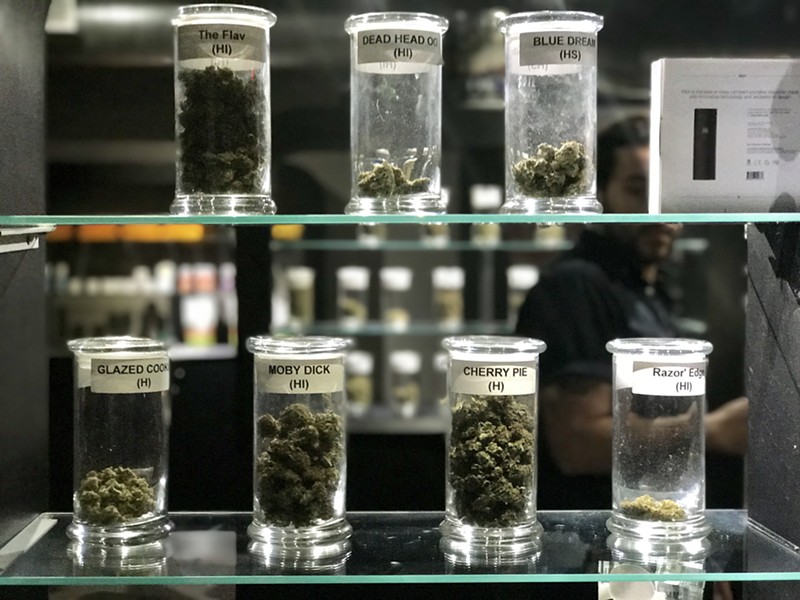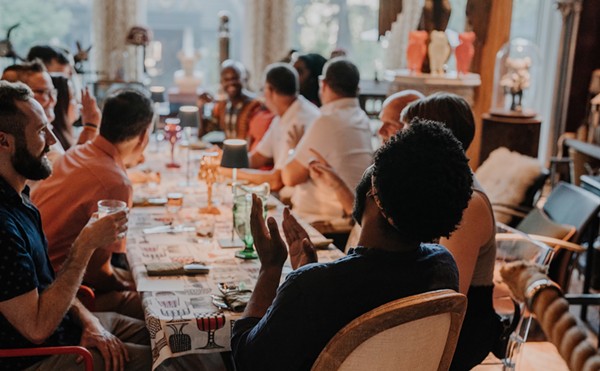Judge halts Detroit's recreational marijuana ordinance, saying it's 'likely unconstitutional'
[
{
"name": "GPT - Leaderboard - Inline - Content",
"component": "35519556",
"insertPoint": "5th",
"startingPoint": "3",
"requiredCountToDisplay": "3",
"maxInsertions": 100
}
]
A federal judge on Thursday indefinitely blocked the city of Detroit from processing recreational marijuana business applications, saying a new city ordinance that gives licensing preference to longtime Detroiters is “likely unconstitutional.”
U.S. District Judge Bernard A. Friedman granted a preliminary injunction in a lawsuit that argues the residency requirements are unconstitutional and discriminatory.
The ordinance “gives an unfair, irrational, and likely unconstitutional advantage to long-term Detroit residents over all other applicants,” Friedman said in a 19-page decision.
Crystal Lowe, who has lived in Detroit for 11 of the past 30 years, filed the lawsuit in March, arguing the ordinance “has almost certainly denied” her opportunity to obtain a license because its “licensing scheme favors certain Detroit residents over other Michiganders based on the duration of their residency.”
Under the “legacy” ordinance, which the Detroit City Council approved in November, applicants are given priority if they’ve lived in the city for 15 of the last 30 years, lived in Detroit for 13 of the last 30 years and are lower-income, or lived in Detroit for 10 of the last 30 years and have a past marijuana-related criminal conviction. At least 50% of the licenses must be issued to legacy residents.
City council members said the ordinance, in part, was intended to address the war on drugs’ disproportionate impact on Black Detroiters. But the judge pointed out that the ordinance doesn’t necessarily favor applicants impacted by the war on drugs.
“Certainly, many people who have lived in Detroit for this period of time, or longer, have not been burdened with a marijuana-related arrest or conviction,” Friedman wrote. “And just as certainly, many people who have lived in Detroit for fewer than ten years have been significantly burdened by such an arrest or conviction.”
The ordinance, he added, "thus prefers wealthy applicants who had no interaction with the War on Drugs to low-income applicants who have been ravaged by it, so long as the wealthy applicants have lived in Detroit for the right amount of time.”
Friedman agreed with Lowe’s attorney Kevin Blair, who argued the ordinance is “pure economic protectionism.”
“The Ordinance is far more protectionist than it is equitable,” Friedman wrote.
Friedman’s decision is a major blow to Detroit’s long-awaited recreational marijuana industry, at least in the short term. For now, Detroit doesn’t plan to revise its ordinance to legalize recreational marijuana businesses within the city.
“In the meantime, one thing is for certain: The city will not issue any recreational licenses unless there is legal assurance that Detroiters will receive a fair share of those licenses," Kim Rustem, director of the city's department of civil rights, inclusion and opportunity, said in a statement to Metro Times.
Recreational marijuana businesses have been legal in Michigan since December 2019. But Detroit, like more than three-quarters of Michigan’s communities, passed an ordinance to prevent growers and dispensaries from operating.
The plan was to draft an ordinance that would ensure Detroiters didn’t miss out on the lucrative industry.
The city began accepting recreational marijuana business licenses in January. The city plans to provide licenses to as many as 75 recreational marijuana retailers and 35 cannabis consumption lounges.
Detroit Councilman James Tate, who helped draft the ordinance, said he will continue to push for a way to help Detroiters enter the cannabis industry.
"While I am disappointed by today’s ruling, I will continue fighting for the ability of Detroiters to own and operate cannabis-related businesses in the city that they live in," Tate said in a statement. "Social equity policies like the Detroit Legacy portion of our licensing ordinance always come under attack when there are genuine efforts to remove excessive barriers and create a more just process for those who have been harmed by the system. Our intention for crafting such legislation was never to prevent anyone from participating in the recreational marijuana industry but to ensure that the long-standing residents of this city – residents who have endured ill effects of the nation’s “War on Drugs” through mass incarceration, punitive hiring policies, blight and generational poverty — have a fair shot of participating in a potentially lucrative opportunity for Detroit."
Tate said the adult-use licenses will not move forward without a new plan.
"We are currently reviewing all options as we move forward, but I would like to make it clear that no adult-use licenses will be issued in the city unless Detroit residents are provided the ability to truly compete for the same wealth building opportunities that other communities have benefited from in the cannabis industry," he said. "Detroiters are more than consumers – we are entrepreneurs, growers, producers and much more. It’s beyond time that others realize this as well."
Stay connected with Detroit Metro Times. Subscribe to our newsletters, and follow us on Google News, Apple News, Twitter, Facebook, Instagram, or Reddit.







